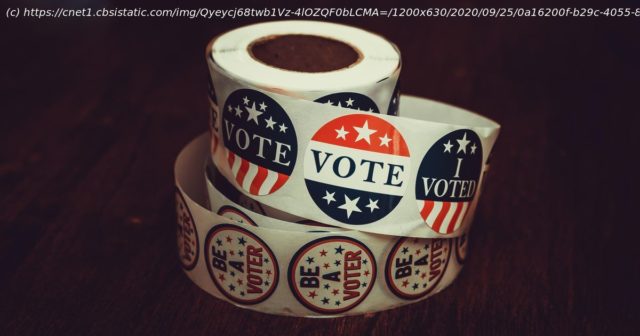Calling the winner in the US presidential contest is taking longer than in recent elections. Many counties are still tallying votes because the coronavirus pandemic …
Calling the winner in the US presidential contest is taking longer than in recent elections. Many counties are still tallying votes because the coronavirus pandemic prompted a surge in requests for absentee ballots. Over 96 million Americans had voted as of Monday, representing more than 45% of registered US voters, with many turning in vote-by-mail ballots that’ll take time to count before we’ll know whether President Donald Trump or former Vice President Joe Biden has won the election. The lack of a final result hasn’t stopped the flow of speculation, though. The public has already heard wild rumors, false reports and premature declarations of victory, just as election security experts warned would happen. Just look at what Twitter had to deal with, such as tweets suggesting polls would be open the day after the election, reports of a fake AP Politics account, and rumors that Republican voters in Maricopa County, Arizona, were given Sharpie pens that wouldn’t work with ballot scanning machines (the county election agency said the pens work with the ballot readers). YouTube also battled misinformation, pulling down streams broadcasting fake election results. Added to that, the president weighed in on election results by way of posted messages that social networks felt needed to be labeled. Inaccurate reports are likely to keep coming. Some of it will be disinformation, or deliberately false and misleading content. Misinformation is a broader term that describes incorrect information regardless of whether the person sharing it knows it’s false. Some bad information will originate from fake accounts, possibly run out of Russia. Some may come from politicians themselves. Almost all of it will be amplified by people who don’t know it’s false. As usual, misinformation will spread through social media platforms including Twitter, Facebook, Instagram, YouTube and Reddit. (Major social media companies have plans to combat misinformation.) Group messages on WhatsApp, Telegram and other services will also magnify misinformation, as will political commentary on YouTube and podcasting platforms, as well as political talk shows on TV and radio stations. Read more: Facebook, Twitter plan to warn you if politicians prematurely declare victory Chris Krebs, the country’s top election security official, urged people to be cautious about reports of election results, saying in remarks at a cybersecurity conference, „Think before you share.






